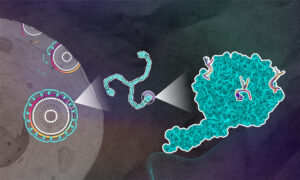
Picky proteins: understanding yeast adaptor protein selectivity
Scientists from EMBL Hamburg and CSSB have revealed key insights into the cellular process of clathrin-mediated endocytosis.
SCIENCE & TECHNOLOGY2024
science-technology
Showing results out of

Scientists from EMBL Hamburg and CSSB have revealed key insights into the cellular process of clathrin-mediated endocytosis.
SCIENCE & TECHNOLOGY2024
science-technology
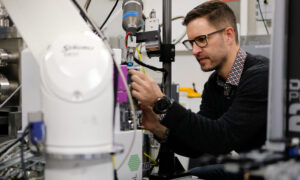
Nicolas Foos, a postdoctoral fellow at EMBL Grenoble, talks about the implementation of a new method for in situ serial crystallography developed during his ARISE fellowship.
SCIENCE & TECHNOLOGY2024
science-technology
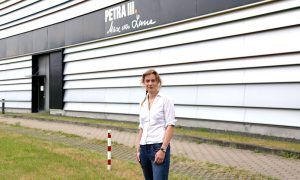
EMBL Hamburg is located at the PETRA III synchrotron, which in the future, will be upgraded to PETRA IV. Selina Storm is theEMBL@PETRA IV Programme Manager. Here, she speaks about her role and the benefits of PETRA IV for EMBL.
LAB MATTERSPEOPLE & PERSPECTIVES2023
lab-matterspeople-perspectives
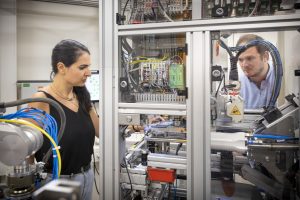
EMBL Grenoble technology teams provide a sneak peek into their latest collaborative project in structural biology services: the complete automation of an integral step in X-ray crystallography.
EMBLetc2023

EMBL Hamburg scientists have contributed to the development of the Spitrobot, a ground-breaking experimental setup that will simplify creating molecular movies. The Spitrobot automates the sample preparation for time-resolved crystallography, which is used to create 3D snapshots of protein…
SCIENCE & TECHNOLOGY2023
sciencescience-technology
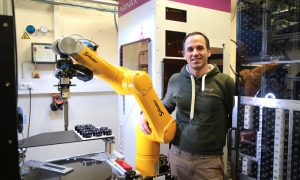
Physicists, engineers and robotics experts work together in EMBL Hamburg’s Instrumentation Team to design instruments that support structural biology research. The team has finished a transfer robot that facilitates automated handling of protein crystals with care and precision. This will help…
LAB MATTERSSCIENCE & TECHNOLOGY2023
lab-mattersscience-technology
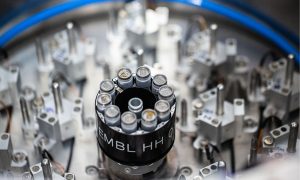
EMBL Hamburg’s integrated structural biology facility has contributed to the success of a large-scale SARS-CoV-2 study
SCIENCE & TECHNOLOGY2021
sciencescience-technology
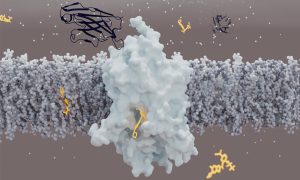
Scientists have determined the structure of Glycine Transporter 1. The finding could open new avenues for developing therapeutics for psychiatric disorders
SCIENCE & TECHNOLOGY2021
sciencescience-technology
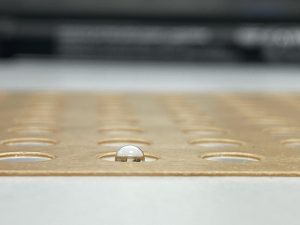
Scientists at EMBL Hamburg use droplets of protein solution to grow protein crystals. By exposing the crystals to X-rays, they are able to determine the protein’s molecular structure.
SCIENCE & TECHNOLOGY2021
picture-of-the-weekscience-technology
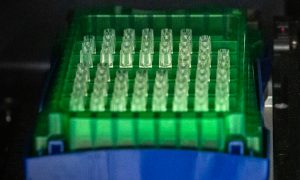
Scientists at EMBL Hamburg and Karolinska Institutet Stockholm aim to find synthetic antibodies – known as nanobodies – that bind a surface protein of the novel SARS-CoV-2 coronavirus. Nanobodies could prevent the virus from entering human cells and causing COVID-19.
SCIENCE & TECHNOLOGY2020
sciencescience-technology
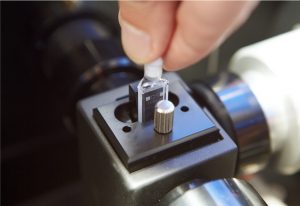
EU funding for iNEXT-Discovery consortium unlocks key technologies for structural biology
EMBL ANNOUNCEMENTSLAB MATTERS2019
embl-announcementslab-matters
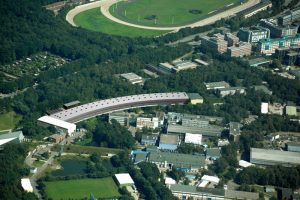
The German Federal Ministry for Education and Research (BMBF) has awarded 8.8 Million Euro to the Hamburg Outstation of the European Molecular Biology Laboratory (EMBL) for the construction of an Integrated Research Facility for Structural Biology at the new PETRA-III storage ring of the German…
LAB MATTERS2007
lab-matters
No results found